Panels
Panel 1. EU-India collaboration for smarter energy systems: RE-EMPOWERED and SUSTENANCE projects
A) Panel Session Description:
India is undertaking ambitious policies for the energy transition, while striving to increase electricity access and reliability of supply. The country has become one of the largest PV markets globally, with large-scale solar farms and rooftop installations growing rapidly, while it is also a major player in wind energy and biomass. Moreover, it has made significant progress in rural electrification and the development of microgrids over the past decade. To facilitate this process, international collaborative research projects are currently taking place. The EU-India RE-EMPOWERED project is developing and demonstrating novel tools for microgrids / energy islands, including planning and operation tools, digital platforms, power electronic converters etc. The EU-India SUSTΕNANCE project develops smart technological concepts to allow higher share of local renewable energy and efficient integrated energy solutions for the electrical, heat, water, waste as well as transportation infrastructure. The developed solutions/methods have been tailored to the specific needs of pilot cases in India and EU but aim at a wide target group for replication and exploitation in both the developed and developing world. This session will present the final outcomes of these two India-EU projects, highlighting the main achievements and lessons learned.
Moderators:
Panos Kotsampopoulos, National Technical University of Athens
Birgitte Bak-Jensen, Aalborg University
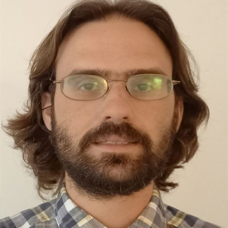 i) Panos Kotsampopoulos received the Diploma in Electrical and Computer Engineering and his PhD degree from NTUA in 2010 and 2017 respectively. Since 2009 he has been member of the Smart RUE research group of ICCS-NTUA, and is now Principal Researcher of ICCS in the field of Smart Grids and Adjunct Lecturer at ECE-NTUA. He was a guest researcher at the Austrian Institute of Technology AIT in 2012 and 2013. He is coordinating the European partners of the H2020 EU-India RE-EMPOWERED project. He is chair of the IEEE PES Task Force “Innovative teaching methods for modern power and energy systems”, chapter leader of IEEE WG P2004 and member of the Editorial Board of the “IEEE Open Access Journal of Power and Energy” and the journal “Energies”. He is past-chair of the IEEE Young Professionals Greece and co-founder of the energy community “Collective Energy”. He is senior member of IEEE and recipient of the 2020 best paper award of the IEEE Open Access Journal of Power and Energy.
i) Panos Kotsampopoulos received the Diploma in Electrical and Computer Engineering and his PhD degree from NTUA in 2010 and 2017 respectively. Since 2009 he has been member of the Smart RUE research group of ICCS-NTUA, and is now Principal Researcher of ICCS in the field of Smart Grids and Adjunct Lecturer at ECE-NTUA. He was a guest researcher at the Austrian Institute of Technology AIT in 2012 and 2013. He is coordinating the European partners of the H2020 EU-India RE-EMPOWERED project. He is chair of the IEEE PES Task Force “Innovative teaching methods for modern power and energy systems”, chapter leader of IEEE WG P2004 and member of the Editorial Board of the “IEEE Open Access Journal of Power and Energy” and the journal “Energies”. He is past-chair of the IEEE Young Professionals Greece and co-founder of the energy community “Collective Energy”. He is senior member of IEEE and recipient of the 2020 best paper award of the IEEE Open Access Journal of Power and Energy.
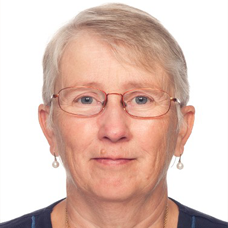 ii) Ms. Birgitte Bak-Jensen is a Professor in Intelligent Control of the Power Distribution System at the Department of Energy, AAU Energy, Aalborg University, where she has worked since August 1988. Her fields of interest are mainly related to the operation and control of the distribution network grid including power quality and stability in power systems and taking integration of dispersed generation and smart grid issues like demand response into account. Also the interaction between the electrical grid and the heating and transport sector is a key area of interest. She has participated in 30 national and international projects e.g. the SuPREME, SmartC2net, SMILE projects and is project leader of the EU H2020 project SERENE and SUSTENANCE. She is also project leader for several Danish research projects such as the just finalized SMARTCE2H project and the ongoing EFFORT project. She is author/co-author of more than 250 papers mainly focused in the area of control and operation of the distribution grid. She is the Vice head of AAU Energy in the area of Research and hold several positions in national and international organizations like IEEE and CIGRE. She has supervised several master and Ph.D students in the area of smart grids, and been in the assessment committee for many international Ph.D defences in this area.
ii) Ms. Birgitte Bak-Jensen is a Professor in Intelligent Control of the Power Distribution System at the Department of Energy, AAU Energy, Aalborg University, where she has worked since August 1988. Her fields of interest are mainly related to the operation and control of the distribution network grid including power quality and stability in power systems and taking integration of dispersed generation and smart grid issues like demand response into account. Also the interaction between the electrical grid and the heating and transport sector is a key area of interest. She has participated in 30 national and international projects e.g. the SuPREME, SmartC2net, SMILE projects and is project leader of the EU H2020 project SERENE and SUSTENANCE. She is also project leader for several Danish research projects such as the just finalized SMARTCE2H project and the ongoing EFFORT project. She is author/co-author of more than 250 papers mainly focused in the area of control and operation of the distribution grid. She is the Vice head of AAU Energy in the area of Research and hold several positions in national and international organizations like IEEE and CIGRE. She has supervised several master and Ph.D students in the area of smart grids, and been in the assessment committee for many international Ph.D defences in this area.
B) Panellists:
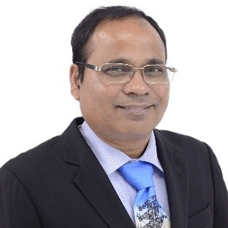 1) Bikash Pal is a Professor of Power Systems at Imperial College London (ICL). He is research active in power system stability, control, and estimation. Currently he is leading a six university UK-China research consortium on Resilient Operation of Sustainable Energy Systems (ROSES) as part of EPSRC-NSFC Programme on Sustainable Energy Supply. He led UK-China research consortium project on Power network stability with grid scale storage (2014-2017): His research is conducted in strategic partnership with ABB, SIEMENS, GE Grid Solutions, UK, and National Grid, UK. UK Power Networks. SIEMENS R&D collaborated with him to develop fast power flow and volt-var control tools in Spectrum Power, an advanced module for distribution management system solution from SIEMENS. This is now commissioned in distribution control centres in Columbia, Bosnia Norway and Azerbaijan serving 15 million customers in these countries. GE commissioned sequel of projects with him to analyse and solve wind farm HVDC grid interaction problems (2013-2019). Prof Pal was the chief technical consultant for a panel of experts appointed by the UNFCCC CDM (United Nations Framework Convention on Climate Change Clean Development Mechanism). He has offered trainings in Chile, Qatar, UAE, Malaysia and India in power system protections, stability and control topics. He has developed and validated a prize winning 68-bus power system model, which now forms a part of IEEE Benchmark Systems as a standard for researchers to validate their innovations in stability analysis and control design. He was the Editor-in-Chief of IEEE Transactions on Sustainable Energy (2012-2017) and Editor-in-Chief of IET Generation, Transmission and Distribution (2005-2012). He is Vice President, PES Publications (2019-2023). In 2016, his research team won the President’s outstanding research team award at Imperial College London (ICL). He is Fellow of IEEE for his contribution to power system stability and control. He is Fellow of The Royal Academy of engineering, UK for the impact of his contribution to the field. He is an IEEE Distinguished Lecturer in Power distribution system estimation and control. He has published about 125 papers in IEEE Transactions and authored four books in power system modelling, dynamics, estimations and control. He was Otto Monsted Professor at Denmark Technical University (DTU) (2019) and Mercator Professor sponsored by German Research Foundation (DFG) at University of Duisburg-Essen in 2011.
1) Bikash Pal is a Professor of Power Systems at Imperial College London (ICL). He is research active in power system stability, control, and estimation. Currently he is leading a six university UK-China research consortium on Resilient Operation of Sustainable Energy Systems (ROSES) as part of EPSRC-NSFC Programme on Sustainable Energy Supply. He led UK-China research consortium project on Power network stability with grid scale storage (2014-2017): His research is conducted in strategic partnership with ABB, SIEMENS, GE Grid Solutions, UK, and National Grid, UK. UK Power Networks. SIEMENS R&D collaborated with him to develop fast power flow and volt-var control tools in Spectrum Power, an advanced module for distribution management system solution from SIEMENS. This is now commissioned in distribution control centres in Columbia, Bosnia Norway and Azerbaijan serving 15 million customers in these countries. GE commissioned sequel of projects with him to analyse and solve wind farm HVDC grid interaction problems (2013-2019). Prof Pal was the chief technical consultant for a panel of experts appointed by the UNFCCC CDM (United Nations Framework Convention on Climate Change Clean Development Mechanism). He has offered trainings in Chile, Qatar, UAE, Malaysia and India in power system protections, stability and control topics. He has developed and validated a prize winning 68-bus power system model, which now forms a part of IEEE Benchmark Systems as a standard for researchers to validate their innovations in stability analysis and control design. He was the Editor-in-Chief of IEEE Transactions on Sustainable Energy (2012-2017) and Editor-in-Chief of IET Generation, Transmission and Distribution (2005-2012). He is Vice President, PES Publications (2019-2023). In 2016, his research team won the President’s outstanding research team award at Imperial College London (ICL). He is Fellow of IEEE for his contribution to power system stability and control. He is Fellow of The Royal Academy of engineering, UK for the impact of his contribution to the field. He is an IEEE Distinguished Lecturer in Power distribution system estimation and control. He has published about 125 papers in IEEE Transactions and authored four books in power system modelling, dynamics, estimations and control. He was Otto Monsted Professor at Denmark Technical University (DTU) (2019) and Mercator Professor sponsored by German Research Foundation (DFG) at University of Duisburg-Essen in 2011.
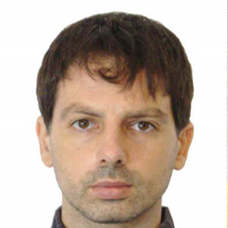
2) Athanasios Vasilakis received his Diploma in Electrical Engineering in 2012 from the School of Electrical and Computer Engineering, National Technical University of Athens (NTUA). He is currently a PhD student at the Electric Power Division of NTUA in the area of Distributed Energy Resources. Since 2012, he has been working as a researcher in the Smart grids Research Unit where he has involved in R&D projects. He is also member of the Rural Electrification Research Group of the NTUA, a group which conducts interdisciplinary research with the aim of providing technical solutions for rural energy access. He is a founding member and board member of the civil energy community, Collective Energy.

3) George Milionis is Professional and detail-oriented Energy Engineer, with experience working in a variety of fast paced, dynamic and ever- changing settings. Evolved in various projects and gained valuable knowledge and experience over the new challenges and technologies towards decarbonization policy, e.g., Renewables, Energy Storage Systems, Target Model, as well as state of the art ICT infrastructure. Expertise on energy markets analysis, technical and financial studies for business plans, decision support tools development, mathematical optimization modeling, energy planning for non-interconnected and mainland power systems. Certified Energy Spot and Derivatives Market Trader and Member of the Technical Chamber of Greece.
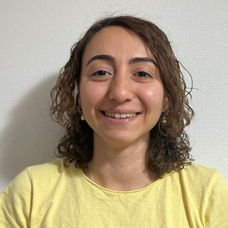
4) Aysegul Kahraman is a postdoctoral researcher at the Technical University of Denmark (DTU). She completed her Ph.D. in Wind and Energy Systems at DTU in 2024. She has gained valuable experience through her involvement in multiple Horizon projects during both her master's and Ph.D. Prior to her Ph.D., she worked as a research assistant for three years at Yasar University, where she completed her master’s in Energy Systems Engineering. Her research focuses on power systems, stochastic optimization, the optimal operation of multi-energy systems, forecasting and machine learning.

5) Srinivas Bhaskar Karanki received his B.Tech. degree from the Acharya Nagarjuna University, Guntur, India, in 2007 and the Ph.D. degree in electrical engineering from the Indian Institute of Technology Madras, Chennai, India, in 2012. From 2012 to 2014, he was a Post-Doctoral Fellow in Centre for Urban Energy (CUE), Ryerson University, and Toronto, Canada. He is currently an Associate Professor in the School of Electrical Sciences, Indian Institute of Technology Bhubaneswar, Bhubaneswar, India. He is senior member of the IEEE Power & Energy Society and Power Electronics Society. He was the chapter chair for IEEE Power Electronics Society Bhubaneswar Chapter (2019-2021) and also currently the Indian Liaison for IEEE PELS. He was awarded with POSOCO-2013 best thesis award for his doctoral thesis. He was an academic visitor at University of Warwick, Coventry United Kingdom in 2019. He has participated in UK India research projects as principal investigator from IIT Bhubaneswar for UKICERI (UK India Clean Energy Research Institute). Dr. Srinivas Bhaskar Karanki was awarded with Director’s Commendation for Outstanding Services 2020 (Faculty Members)- For Counselling Services in 2021. He was also awarded with teaching excellence award in 2022. He has been involved in several other research projects as PI and Co-PI sponsored by DST, Odisha State. His current research interests include power electronic converters for renewable energy systems, power quality, energy storage, and power electronics applications in power systems.
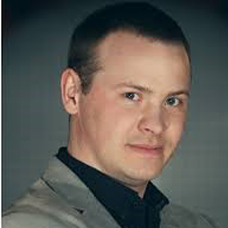
6) Krzysztof Rafał, PhD – obtained his degree in electrical engineering at the Warsaw University of Technology. He specializes in control and power electronics devices for distributed energy. Experienced research team leader, conducting research and development projects in companies and academic/industrial consortiums. Since 2017 employee of the Institute of Fluid-Flow Machinery, Polish Academy of Sciences. Since 2020 co-founder of STAY-ON Energy Management company, working as R&D manager. With the Institute and STAY-ON he implemented the EU Horizon 2020 projects: 'SERENE' and 'SUSTENANCE'.
Panel 2. Resilience Against Natural Disasters and Extreme Weather
In an era characterized by increasing reliance on interconnected electrical grids and growing threats from climate change, cyber-attacks, and other disruptive events, the need for resilient power systems has never been more critical. Hosted by the R2D2 (“Reliability, Resilience and Defense technology for the grid”) Horizon Europe project, this panel session brings together leading experts from academia, industry, and research institutions to explore the latest technological advancements and future challenges in power system resilience. The panelists will present a wide range of topics on technological innovations driving advancements in power system resilience. From advanced monitoring and control systems to the integration of renewable energy sources and the deployment of microgrids, data analytics and data-driven applications, risk-aware investment planning and policy and regulatory frameworks, the panel will showcase cutting-edge solutions and real-world examples that enhance grid resilience and adaptability to uncertain system and climatic conditions.
Moderator:
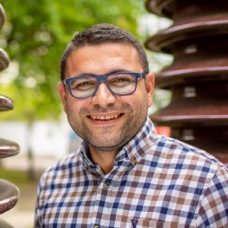 Mathaios Panteli holds an Assistant Professor position within the KIOS Research and Innovation Centre of Excellence, Department of Electrical and Computer Engineering, University of Cyprus since January 2021. He also holds an Honorary Lecturer position in Department of Electrical and Electronic Engineering, Imperial College London, UK, and he is currently the Andre Jaumotte Chair Professor in Université Libre de Bruxelles (by the Royal Academy of Belgium). Mathaios is an IEEE Senior Member, an IET Chartered Engineer (CEng), the Chair of the CIGRE working group C4.47 “Power System Resilience” and the CIGRE Cyprus National Committee, an invited member of multiple IEEE, CIGRE and CIRED working groups, and a Fellow of the Higher Education Academy (UK). He serves as an Guest Associate Editor in IEEE Transactions on Sustainable Energy, IEEE Journal of Modern Power Systems and Clean Energy, and IET Renewable Power Generation. He is the recipient of the prestigious 2018 Newton Prize and he led the team receiving the 2022 Innovation Radar Prize by the European Commission. He was also recognized for 4 consecutive years since 2020 as a highly cited researcher by Elsevier BV and Stanford University databases.
Mathaios Panteli holds an Assistant Professor position within the KIOS Research and Innovation Centre of Excellence, Department of Electrical and Computer Engineering, University of Cyprus since January 2021. He also holds an Honorary Lecturer position in Department of Electrical and Electronic Engineering, Imperial College London, UK, and he is currently the Andre Jaumotte Chair Professor in Université Libre de Bruxelles (by the Royal Academy of Belgium). Mathaios is an IEEE Senior Member, an IET Chartered Engineer (CEng), the Chair of the CIGRE working group C4.47 “Power System Resilience” and the CIGRE Cyprus National Committee, an invited member of multiple IEEE, CIGRE and CIRED working groups, and a Fellow of the Higher Education Academy (UK). He serves as an Guest Associate Editor in IEEE Transactions on Sustainable Energy, IEEE Journal of Modern Power Systems and Clean Energy, and IET Renewable Power Generation. He is the recipient of the prestigious 2018 Newton Prize and he led the team receiving the 2022 Innovation Radar Prize by the European Commission. He was also recognized for 4 consecutive years since 2020 as a highly cited researcher by Elsevier BV and Stanford University databases.
Title: Key challenges for operating future grids under a carbon-neutral Europe
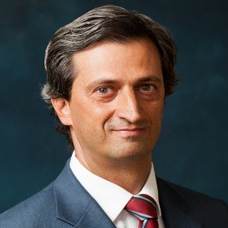 Nuno de Souza e Silva currently leads R&D Nester, the Research Center for Energy from REN (the Portuguese TSO) and State Grid working under the motto “Creating a Smart Energy Future”, dealing mainly with international research and innovation project on Renewable Energy integration, Smartgrids, Power Systems simulation and Energy Markets. He was the National Representative of the CIGRE National Committee for Study Committee C5 on Markets and Regulation from 2018-2022, and is a member of the European ETIP-SNET, the European Technology Innovation Platform – Smart Networks for Energy Transition, providing advice to the European Commission on R&D and Innovation priorities, and of IEC TC8 on “System aspects of electrical energy supply”. As Country Manager of KEMA (currently DNV-GL), he provided consultancy for the energy sector in Portugal and abroad. During three years in the Ministry of Economy as Director of the Cabinet for Strategy and Studies, he worked in public policies, including Innovation, Sustainable Development and Economic Growth. During that period, he was member of the Portuguese Economical and Social Council.
Nuno de Souza e Silva currently leads R&D Nester, the Research Center for Energy from REN (the Portuguese TSO) and State Grid working under the motto “Creating a Smart Energy Future”, dealing mainly with international research and innovation project on Renewable Energy integration, Smartgrids, Power Systems simulation and Energy Markets. He was the National Representative of the CIGRE National Committee for Study Committee C5 on Markets and Regulation from 2018-2022, and is a member of the European ETIP-SNET, the European Technology Innovation Platform – Smart Networks for Energy Transition, providing advice to the European Commission on R&D and Innovation priorities, and of IEC TC8 on “System aspects of electrical energy supply”. As Country Manager of KEMA (currently DNV-GL), he provided consultancy for the energy sector in Portugal and abroad. During three years in the Ministry of Economy as Director of the Cabinet for Strategy and Studies, he worked in public policies, including Innovation, Sustainable Development and Economic Growth. During that period, he was member of the Portuguese Economical and Social Council.
Title: HEDNO: Climate Resilience Strategy
 George Andreakos, holds the position of Grid Operations Director at HEDNO, the Hellenic Distribution Network Operator, since 2023. Before that, he lived in the UK for over 20 years where he worked at Electricity North West at every part of the business starting as graduate, moving on as operational engineer, senior authorised (SAP) at all voltage levels, from LV up to 400kV, specializing in protection systems, commissioning, construction and maintenance and progressed to take on more executive management roles that have allowed him to experience working in both the US and the UK. George is an IEEE Senior Member, an IET Chartered Engineer and has enjoyed creating and driving strategic commercial, technical and operational initiatives to deliver best practice, high quality customer service and maximize value in challenging, continuously evolving environments like in electricity utilities. He is APM Project Management & NEBOSH certified and he has led the full life-cycle design, deployment and performance improvement of cutting edge distribution systems and operational resources to ensure networks are safe, reliable and cost efficient. He is a valued member of the Climate Risks and Adaption WG within the E.DSO Policy & Regulation Committee, a member of the CIRED Session Advisory Group of Network Components and for years he served as the Chairman of the IET Manchester Network Executive Committee.
George Andreakos, holds the position of Grid Operations Director at HEDNO, the Hellenic Distribution Network Operator, since 2023. Before that, he lived in the UK for over 20 years where he worked at Electricity North West at every part of the business starting as graduate, moving on as operational engineer, senior authorised (SAP) at all voltage levels, from LV up to 400kV, specializing in protection systems, commissioning, construction and maintenance and progressed to take on more executive management roles that have allowed him to experience working in both the US and the UK. George is an IEEE Senior Member, an IET Chartered Engineer and has enjoyed creating and driving strategic commercial, technical and operational initiatives to deliver best practice, high quality customer service and maximize value in challenging, continuously evolving environments like in electricity utilities. He is APM Project Management & NEBOSH certified and he has led the full life-cycle design, deployment and performance improvement of cutting edge distribution systems and operational resources to ensure networks are safe, reliable and cost efficient. He is a valued member of the Climate Risks and Adaption WG within the E.DSO Policy & Regulation Committee, a member of the CIRED Session Advisory Group of Network Components and for years he served as the Chairman of the IET Manchester Network Executive Committee.
Title: Building Machine Learning Supported Resilient Power Grids
 Jin Zhao is an Assistant Professor at Trinity College Dublin, Ireland. She is the Alexander von Humboldt Fellow of Germany. She was a Research Scientist at The University of Tennessee (UTK), USA. She received Ph.D. degree from Shandong University in Electrical Engineering, in 2020. She was an outstanding reviewer of several IEEE Trans. journals and a regular reviewer for IEEE and Nature Portfolio journals. She is a Subject Editor of IET Generation, Transmission & Distribution. She is the chair of IEEE Task Force AISR, and PES representative and steering committee member of IEEE DataPort. Her research interests include power system resilience, transmission and distribution system restoration, optimal operation of highly renewable energy integrated systems, resilient microgrids, and machine learning.
Jin Zhao is an Assistant Professor at Trinity College Dublin, Ireland. She is the Alexander von Humboldt Fellow of Germany. She was a Research Scientist at The University of Tennessee (UTK), USA. She received Ph.D. degree from Shandong University in Electrical Engineering, in 2020. She was an outstanding reviewer of several IEEE Trans. journals and a regular reviewer for IEEE and Nature Portfolio journals. She is a Subject Editor of IET Generation, Transmission & Distribution. She is the chair of IEEE Task Force AISR, and PES representative and steering committee member of IEEE DataPort. Her research interests include power system resilience, transmission and distribution system restoration, optimal operation of highly renewable energy integrated systems, resilient microgrids, and machine learning.
Title: Resilient, reliable and secure power systems: the eFORT project
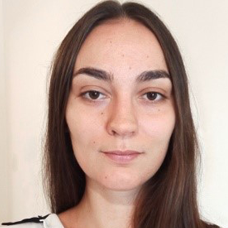 Maria Fotopoulou is an electrical engineer from the Nation Technical University of Athens (NTUA). She is cooperating with the Centre for Research and Technology Hellas (CERTH) since 2019, focusing on distribution networks both as a project manager and as a developer in Horizon projects such as Plug-N-Harvest, TIGON, INTERPRETER, ENFLATE, SINNOGENES, SSTAR and eFORT. Her research interests include smart grids, renewable energy sources, electric vehicles, AC/DC hybrid networks, day-ahead optimization and demand response strategies. She has published both original research and review papers in peer-reviewed scientific journals and conferences.
Maria Fotopoulou is an electrical engineer from the Nation Technical University of Athens (NTUA). She is cooperating with the Centre for Research and Technology Hellas (CERTH) since 2019, focusing on distribution networks both as a project manager and as a developer in Horizon projects such as Plug-N-Harvest, TIGON, INTERPRETER, ENFLATE, SINNOGENES, SSTAR and eFORT. Her research interests include smart grids, renewable energy sources, electric vehicles, AC/DC hybrid networks, day-ahead optimization and demand response strategies. She has published both original research and review papers in peer-reviewed scientific journals and conferences.
Title: Operational and Infrastructure Planning to Enhance Resilience
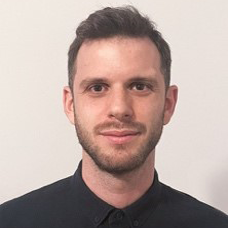 Dimitris N. Trakas received the Diploma degree in electrical and computers engineering, the M.Sc. degree in energy production and management, and the Ph.D. degree from the National Technical University of Athens (NTUA), Athens, Greece, in 2009, 2011, and 2018, respectively. He has co-authored book chapters and participated in panel sessions on power systems resilience. He has worked with the Research, Innovation, and Development Department of the Greek TSO and has participated in the studies for the interconnection of the islands with the National Interconnected Transmission System. He is currently a Senior Power Systems Engineer at SMPnet developing software technology for grid digitilisation helping utilities to transform their power grid operations. He is Member of IEEE.
Dimitris N. Trakas received the Diploma degree in electrical and computers engineering, the M.Sc. degree in energy production and management, and the Ph.D. degree from the National Technical University of Athens (NTUA), Athens, Greece, in 2009, 2011, and 2018, respectively. He has co-authored book chapters and participated in panel sessions on power systems resilience. He has worked with the Research, Innovation, and Development Department of the Greek TSO and has participated in the studies for the interconnection of the islands with the National Interconnected Transmission System. He is currently a Senior Power Systems Engineer at SMPnet developing software technology for grid digitilisation helping utilities to transform their power grid operations. He is Member of IEEE.
Title: Regulatory Frameworks and Standards for Resilient Power Systems
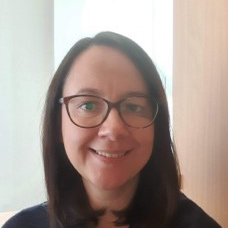 Aleksandra Krkoleva Mateska is professor at the Ss Cyril and Methodius University in Skopje, Faculty of Electrical Engineering and Information Technologies (UKIM/FEIT). She works in the field of power systems, focusing on Smart Grids, renewable sources integration in distribution grids and Microgrids, electricity markets and regulation related to these areas. She has had a number of study visits to other universities, including at the University of Manchester, UK, University of Rostock, Germany, National Technical University in Athens, Greece. She is an author and co-author of more than ninety research papers published in conferences and international journals. She has participated in several research projects financed by various programs of the European Commission as a member of the UKIM/FEIT. As a representative of the CROSSBOW and R2D2 projects, she participates in the BRIDGE Regulation Working Group. She is a member of IEEE and CIGRE.
Aleksandra Krkoleva Mateska is professor at the Ss Cyril and Methodius University in Skopje, Faculty of Electrical Engineering and Information Technologies (UKIM/FEIT). She works in the field of power systems, focusing on Smart Grids, renewable sources integration in distribution grids and Microgrids, electricity markets and regulation related to these areas. She has had a number of study visits to other universities, including at the University of Manchester, UK, University of Rostock, Germany, National Technical University in Athens, Greece. She is an author and co-author of more than ninety research papers published in conferences and international journals. She has participated in several research projects financed by various programs of the European Commission as a member of the UKIM/FEIT. As a representative of the CROSSBOW and R2D2 projects, she participates in the BRIDGE Regulation Working Group. She is a member of IEEE and CIGRE.
Panel 3. Energy Data Spaces
The Energy Data Spaces panel will explore the transformative potential of data integration and sharing within the power and energy sector. By leveraging Energy Data Spaces, power system engineers, industry leaders and policymakers can enhance collaboration, optimize energy systems, and drive innovation in the power system value chain. Key experts from the Power and Energy community will present their insights from their active involvement in the Energy Data Spaces Cluster of Projects. The panel will address key issues such as data accessibility in a decentralized energy system, security and privacy of prosumer data, valorisation and business models for data sharing, the role of artificial intelligence in managing complex energy data, et al. The emerging discussion will address key Technical, Engagement and Business challenges. Participants will gain insights into how data spaces can support sustainable energy transition, improve efficiency, and foster more resilient and intelligent smart grids.
Moderator:
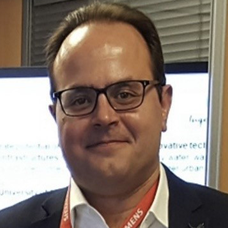
Aris L. Dimeas holds a diploma in Electrical and Computer Engineering from the National Technical University of Athens (NTUA) and obtained his PhD degree in the same field. He currently serves as Assistant Professor at the Department of Electrical and Computers Engineering at NTUA. With a diverse range of expertise, his professional experience encompasses various applications within Power Systems operations, Renewable Energy Sources, Artificial Intelligence in Power Systems, Smart Grids, and Control Software development. Dr. Dimeas has made significant contributions to over 40 EU-funded projects focusing on smart grid technologies.
Panelists

Elena Boskov Kovacs is an expert in the digitalization of energy systems, with over 20 years of global and international experience in the energy sector. As Managing Director at Blueprint Energy Solutions – Austrian energy think tank, she has played a pivotal role in advising utilities across Europe on digital transformation strategies. Her work emphasizes innovation and the development of flexible, future-ready power grids. Elena served as Chairwoman of ETIP SNET's Working Group Digitalisation of Energy and Customer Participation, focusing on the digitalization of electricity systems and enhancing customer participation and produced a policy paper of Energy Data Spaces. She is also active in research and EU funded innovation projects. In these roles involves shaping industry-wide discussions on integrating digital solutions for a more efficient, decarbonized energy future.

Martina Galluccio is an engineer and R&D project manager at RINA Consulting Spa. She worked at the Italian Institute of Technology, where she earned a joint PhD in translational neuroscience and neurotechnology and conducted post-doctoral research. During her PhD years at the Italian Institute of Technology, she was able to deepen her skills in scientific research and innovation, obtaining her degree in 2021. Her expertise spans advanced data analysis techniques, including machine learning and deep learning and PCA. Currently, Martina works as R&D Project Manager at RINA Consulting, within the Energy Innovation Strategic Centre group where she has enhanced her skills in writing and managing European R&D projects. She manages Horizon Europe projects in the energy domain with a focus on digitalization, she is now the Project Coordinator of DATA CELLAR.
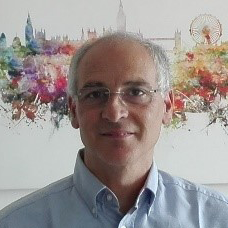
Massimo Bertoncini (Linkedin: https://www.linkedin.com/in/massimo-bertoncini-a9a7932), (male), born in 1967, is currently R&D Program Manager – Digital Energy at Engineering Ingegneria Informatica (http://www.eng.it ). He got his University Degree in Management Engineering in 1992 and gained his Ph.D. in Soft Artificial Intelligence for Production Engineering on 1995, at the University of Palermo. Since May 2001, he has been working in the R&D Laboratory of Engineering S.p.A, where he was involved as coordinator in many FP5, FP6, FP7 Smart Energy grids projects such as GAMES, GEYSER, INGRID, and H2020 projects such as, CATALYST, NRG-5, DEFENDER and eDREAM, H2020 BD4NRG, HE DEDALUS. At the moment he is the coordinator of the HE 2020 ENERSHARE (European Common Energy Data Space Framework Enabling Data Sharing-Driven Across- and Beyond- Energy Services). Main research competences concern soft artificial intelligence (Fuzzy Systems, Genetic algorithms, Neural Networks), advanced decentralized computing technologies (e.g. DLT/Blockchain/smart contracts, edge computing) and artificial intelligence (federated learning) tailored to support secure tamper-proof data sharing and optimised energy management at different levels (smart home, smart buildings, smart districts, smart grids). He has been serving the European Commission as Scientific Expert since 2007 in the Smart City & Sustainability Unit. He is member of the WG4 on Digital Energy of the European Platform on Smart Grids (ETIP SNET). Moreover he is member of Data Management WG of the EC BRIDGE cluster grouping all the Smart Grids European R&D projects.
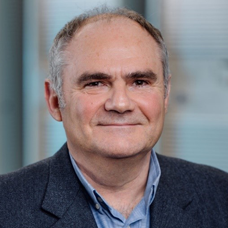
Antonello Monti received his Ph.D. degrees in electrical engineering from the Politecnico di Milano, Italy, in 1994. He started his career with Ansaldo Industria and then held different academic positions in Italy and USA. Since 2008, he has been the Director of the Institute for Automation of Complex Power System, E.ON Energy Research Center, RWTH Aachen University, Germany. Since 2019 he also has a joined appointment at Fraunhofer FIT, Center for Digital Energy Aachen. Prof. Monti is the coordinator of relevant European projects such as TwinEU and IntNet.
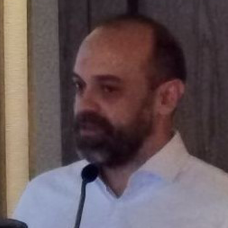
Mr. Tasos Tsitsanis is an Electrical and Computer Engineer, holding an MSc in the field of Energy and Environmental Management. Mr. Tsitsanis has great experience in the fields of data management, data analytics and data sharing technologies applied in the verticals of energy efficiency, energy security of supply and demand side management. He currently holds the position of the Business Development Director in Suite5 Data Intelligence Solutions Limited. He has over 50 publications in international journals and conferences. He is an active member of ETIP-SNET and the Data Management and Business Models Working Groups of BRIDGE.
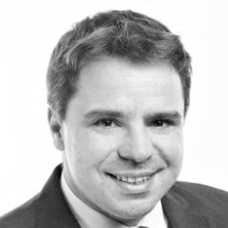
Georg Hartner is an enterprise architect, project manager and software development master. He has outstanding expertise in European energy trading, grid management, smart grids data exchange and distributed ledger technologies (DLT) as well as broad experience in risk management and energy-related regulation and legislation. He also possess strong skills in agile project management and consulting, expertise in building and delivering cross-functional and cross-cultural projects on schedule and budget. He is proficient in driving innovation with a strong focus on business value.
Panel 4. Advanced simulation and laboratory methods in power systems
In the complex digital and multi-energy era, the role of simulation and testing is expected to play an increasingly important role. Advanced simulation and laboratory methods and tools are needed in order to analyse complex interactions and effectively test hardware equipment. Examples of such approaches are hardware in the loop simulation, digital twins and various digital tools/services. This panel will explore next-generation research infrastructure methods, tools, and digital services. Advances on hardware in the loop simulation will be presented, focusing on recent standardization activities. Distributed simulations across different research infrastructures will be discussed, along with a live demonstration, based on the H2020 ERIGrid 2.0 project experiences. The role of digital twin as the next step in simulation and advanced test-bed will be explained. The panel will include important insights from the industry (vendors and users)
Moderator:
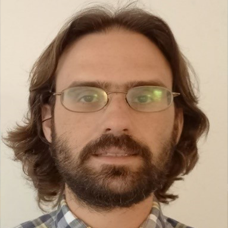
Panos Kotsampopoulos received the Diploma in Electrical and Computer Engineering and his PhD degree from NTUA in 2010 and 2017 respectively. Since 2009 he has been member of the Smart RUE research group of ICCS-NTUA, and is now Principal Researcher of ICCS in the field of Smart Grids and Adjunct Lecturer at ECE-NTUA. He was a guest researcher at the Austrian Institute of Technology AIT in 2012 and 2013. He is coordinating the European partners of the H2020 EU-India RE-EMPOWERED project. He is chair of the IEEE PES Task Force “Innovative teaching methods for modern power and energy systems”, chapter leader of IEEE WG P2004 and member of the Editorial Board of the “IEEE Open Access Journal of Power and Energy” and the journal “Energies”. He is past-chair of the IEEE Young Professionals Greece and co-founder of the energy community “Collective Energy”. He is senior member of IEEE and recipient of the 2020 best paper award of the IEEE Open Access Journal of Power and Energy.
Panelists
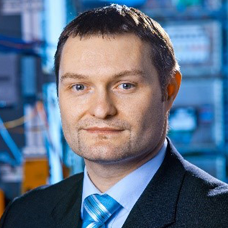
Thomas Strasser received a master's and a PhD degree from the Technische Universität Wien (TU Wien) and he was awarded the Venia Docendi (habilitation) in the field of automation from the same university. For several years, he has been a senior scientist in the Center for Energy of the AIT Austrian Institute of Technology. His main responsibilities involve the strategic development of smart grid automation and validation research projects as well as the mentoring/supervising of junior scientists and PhD candidates. Before joining AIT, Dr Strasser spent more than 6 years as a senior researcher investigating advanced and reconfigurable automation and control systems at PROFACTOR research. He is also active as a docent at TU Wien. He is the co-author of more than 250 scientific publications as well as two patents in the above-mentioned areas.

Natalie Samovich contributes her expertise in the energy sector and digital transition, leveraging her expertise as an innovation manager and entrepreneur. With a focus on digitalisation and spin-off projects, she is an expert and honorary chair of the Smart Grids working group at ETIP-SNET.eu, as well as a steering board member and chair of the Working Group Energy at AIOTI.eu. As a co-founder of MCPV.eu and ResilientHydrogen.eu, Natalie is working on delivering sustainable solutions into ventures centered on green manufacturing and renewable energy systems. Her contributions also include founding the Solar Demonstration platform and Solar Lab projects which are part of the Transnational Validation Network Living Labs and Testbeds, highlighting her commitment to hands-on innovation. Notably, the Solar Demonstration Platform, established in 2011, represents a collaborative effort towards pioneering shared renewable infrastructures and evolving energy community. Natalie's academic background includes an MBA from the University of Rochester, Simon School, and the University of Bern, alongside an MSEng in Sustainable Energy Systems from MIT and IST. Natalie is a speaker, policy contributor, innovation projects advisory board member, and mentor, contributing her insights to drive progress within the field. Her research interests encompass a diverse range of topics, including the digitalisation of energy systems, smart sector integration, and the evolution of manufacturing Industry 4.0 to 5.0. Natalie´s scientific publications are focused on understanding the impacts of the Internet of Things on energy systems, Digital Twin and AI impact in energy sector and addressing socio-economic considerations within smart grids.
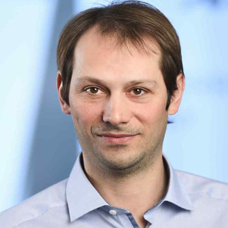
Georg Lauss received the DI degree jointly from the Johannes Kepler University JKU Linz, Austria and the Eidgenössischen Technischen Hochschule ETHZ, Zürich, Switzerland. He received the Dr. degree from the Technische Universität Berlin TU Berlin in 2022. He is currently a Researcher with the AIT Austrian Institute of Technology, Vienna, Austria.
His main interests include real-time simulation for electromagnetic power systems, power electronics, system and control theory, mathematical methods for optimized control systems, and hardware-in-the-loop simulation systems. Georg Lauss is the Chairman of the IEEE WG P2004 Recommended Practice for Hardware-in-the-Loop (HIL) Simulation Based Testing of Electric Power Apparatus and Controls and the IEEE PES Task Force on Real-Time Simulation of Power and Energy Systems.
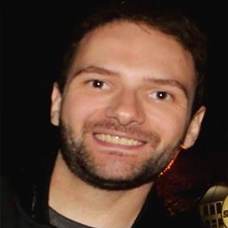
Giuseppe Silano (Member, IEEE) earned his B.Sc. in computer science (2012), M.Sc. in electronics engineering (2016), and Ph.D. in information engineering (2020) from the University of Sannio, Italy. During his Ph.D., he visited LAAS-CNRS and participated in the MBZIRC 2020 robotic competition as a finalist. He served as a post-doctoral researcher at CTU-P with the MRS group from 2020 to 2022, working with Prof. Dr. Martin Saska, and as a visiting researcher at the RAM group, University of Twente, in 2022, working with Prof. Dr. Antonio Franchi. Since 2022, he has been a tenured researcher at Ricerca sul Sistema Energetico (RSE) and an associated researcher at the Czech Technical University in Prague (CTU-P). His research spans model predictive control, formal methods in control and automation, geographically distributed simulations, and coordination and control of multi-energy networks. He has authored over 24 publications and held leadership roles in European research projects. Since 2022, he has served as associate editor for the Mediterranean Conference on Control and Automation and the International Conference on Unmanned Aircraft Systems.
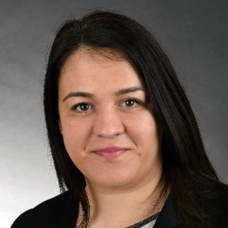
Marija Stevic received the B.Sc. and M.Sc. degrees from the University of Belgrade, Serbia, both in electrical engineering, in 2009 and 2012, respectively. She was with the Institute for Automation of Complex Power Systems, RWTH Aachen University, Germany from 2012 to 2020. In 2016 and 2017 she was a visiting researcher at Idaho National Laboratory, USA, where she coordinated "Global Real-Time Super Lab" activity. In 2020 she joined OPAL-RT Germany GmbH as a Research and Development Engineer. Her research interests include real-time simulation of power electronics applications and Hardware-In-the-Loop testing.
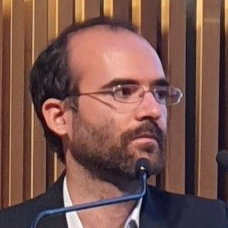
Vasileios Kleftakis received his Diploma and Ph.D. in Electrical Engineering from the School of Electrical and Computer Engineering, National Technical University of Athens (NTUA). His Ph.D. research area was LVDC systems focusing on DC Microgrids and DC railway systems. His research interests also include: Real-Time simulation, Distributed Generation, Power Plant Controllers for RES & BESS integration, Microgrids, Wide Area Management Systems (WAMS) through synchrophasors, management of regenerative energy (braking energy) and storage integration into DC railway systems. He was a member of CIGRE WG C6.30 “The Impact of Battery Energy Storage Systems on Distribution Networks”. Moreover, he was a member at IEC System evaluation Group committee (IEC-SEG4) with title ”Low Voltage Direct Current Applications, Distribution and Safety for use in Developed and Developing Economies”. He was a member at the Ad Hoc Committee on Electric Railway Systems (IEEE VTS Society) and member to the CIRED 2019-1 Working Group on DC Distribution Networks. He has participated in several European projects (e.g. Sustainable, DERri, NobelGrid) and national projects. He is currently, the manager of R&D department of PROTASIS S.A. developing solutions regarding RES & BESS integration into the distribution and transmission electrical network. He is a CIGRE member since 2023 as well as member of the technical chamber of Greece.
Panel 5. Ensuring Flexibility, Stability and Controllability of Power Grids in the Energy Transition: The TRANSIT project
As part of the Horizon Europe project TRANSIT, this panel will explore innovative strategies to enhance the flexibility, stability, and controllability of power grids amidst the ongoing energy transition. Bringing together leading experts and professionals from renowned international institutions, this session aims to discuss key challenges and opportunities on how to effectively monitor, manage and optimize power grids to support the increasing integration of renewable energy. Attendees will gain insights into the TRANSIT project's approaches to addressing the challenges posed by the energy transition, ensuring reliable and efficient power grid performance. From flexible demand-side management to wide area monitoring and control, this session will delve into cutting-edge research and innovative strategies shaping the future of power systems. Join us for insightful discussions and collaboration towards sustainable and efficient energy solutions for future power grids.
Moderator:
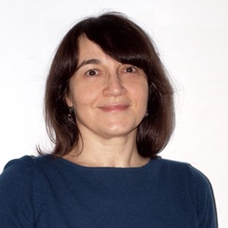 Araceli Hernández is Associate Professor in Electrical Engineering at the Universidad Politécnica de Madrid (Spain). Her research lines are focused on the study of power quality phenomena and the state estimation of power systems. She has participated and managed in several research projects related with power quality, secure managing of distribution networks and integration of renewable energy in power systems.
Araceli Hernández is Associate Professor in Electrical Engineering at the Universidad Politécnica de Madrid (Spain). Her research lines are focused on the study of power quality phenomena and the state estimation of power systems. She has participated and managed in several research projects related with power quality, secure managing of distribution networks and integration of renewable energy in power systems.
Panelists
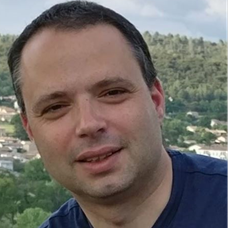 Title: Shaping the Future of Power Grids for a Sustainable Energy Transition through TRANSIT Project
Title: Shaping the Future of Power Grids for a Sustainable Energy Transition through TRANSIT Project
Brian Azzopardi is Founding Chair of The Foundation for Innovation and Research – Malta (FiR.mt), Senior Lecturer II at the Malta College of Arts, Science and Technology (MCAST), Visiting Senior Lecturer at the University of Malta (UM) and Chief Consultant at Azzopardi and Associates. Since 2011, he has held senior academic and research positions in the United Kingdom, Lithuania and Malta. He has also served the industry, government agencies and ministries and research centers since 1998. He is the Coordinator of the Horizon 2020 / Horizon Europe projects: JUMP2Excel, NEEMO, TRANSIT and PROMISE. His research, teaching and consulting activities are in the general area of electrical engineering and energy economics. He develops and applies decision making techniques that achieve value for money, targeting the economic objective, considering also technical and environmental objectives, using multi-objective optimisation or multi-criteria decision making techniques, he explores the best outcome or alternative to implement in an engineering system design or operation.
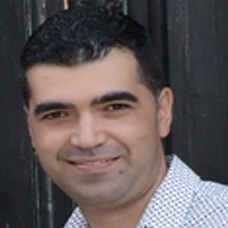 Title: Real Time Monitoring and Control of Future Power Systems
Title: Real Time Monitoring and Control of Future Power Systems
Markos Asprou received the B.Sc and Ph.D. degree in Electrical Engineering from the University of Cyprus in 2009 and 2015 respectively. Currently, he is a Research Lecturer at the KIOS Research and Innovation Center of Excellence of the University of Cyprus. His research expertise includes the wide area monitoring and state estimation of power systems, estimation of transmission line parameters, wide area control of power systems, power systems flexibility, and cybersecurity of power systems.
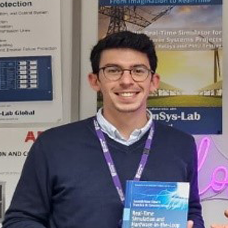 Title: Flexible Operation of Storageless Grid-connected Photovoltaic Systems for Frequency Support
Title: Flexible Operation of Storageless Grid-connected Photovoltaic Systems for Frequency Support
José Miguel Riquelme is Assistant Professor in Electrical Engineering at the Universidad de Sevilla (Spain). His research interests include grid connected photovoltaic systems and power system stability and control.
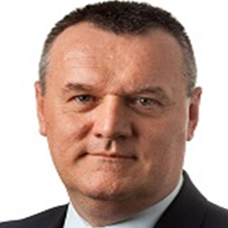 Title: Fast Frequency Control in Low-Inertia Power Systems
Title: Fast Frequency Control in Low-Inertia Power Systems
Igor Kuzle is a Full professor and Head of the Smart Grids Laboratory at the Department of Energy and Power Systems of the University of Zagreb’s Faculty of Electrical Engineering and Computing. He was Head of the Department (2014-2020). Member of two scientific councils of the Croatian Academy of Sciences and Arts and a full member of the Croatian Academy of Engineering. Received numerous awards for his scientific work: Republic of Croatia: National Science Award in 2017; Croatian Academy of Sciences and Arts: Excellence in Engineering Award in 2019; Croatian Academy of Engineering: award "Rikard Podhorsky" in 2020; the University of Zagreb highest award “Fran Bošnjaković” in 2023. Established the university research Smart Grids Laboratory. His scientific interests include problems of dynamics and control of electric power systems, smart grids, and integration of renewable energy sources, as well as maintenance of electric equipment.
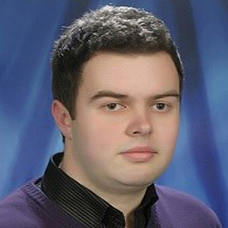 Title. Regional Electricity Balancing Markets – Integration of Flexibility from RES generation, Demand Response and Storage
Title. Regional Electricity Balancing Markets – Integration of Flexibility from RES generation, Demand Response and Storage
Petar Krstevski is associate professor at the Ss Cyril and Methodius University in Skopje, Faculty of Electrical Engineering and Information Technologies (UKIM/FEIT). He works in the field of power systems, and his areas of investigation are the regional integration of electricity markets and ancillary services markets, cross-border coordination in power system operation, integration of generation from renewable energy sources in electricity markets and the regulation related to these areas. He has actively participated in multiple international projects financed by the European Commission and the Kingdom of Norway. He is the author or co-author of more than sixty research papers.
Panel 6. Decentralized flexibility for grid services: The OpentUnity Project
Technology and software solutions of the EU-funded Opentunity project (January 2023-December 2026) aim to increase the use of distribution flexibility for grid services across all grid levels and overall to ensure a secure and reliable data exchange among market agents. The project consortium develops innovative methodologies and technology solutions backed by advanced and interoperable software modules to support stakeholders and market agents to cope with the challenges of the energy transition.
The Opentunity solutions cover 4 core elements:
OpenGrid – Advanced technologies for Distribution System Operators and Transmission System Operators to optimize the network management.
OpenFlex – Innovative Technologies to increase flexibility in prosumer environments.
OpenSpace – Energy data storage and exchange.
OpenAbility – Procedures for enhancing interoperability.
Opentunity solutions are tested in 4 pilot locations; Greece, Switzerland, Slovenia and Spain.
This panel will present the roles and requirements of the System Operators, Flexibility Service Providers and the NODES flexibility market within the flexibility value chain. The discussion will be centred on the experiences and solutions of the Opentunity flexibility market pilot in Mesogeia/Athens, Greece. The panellists will bring their expertise on innovative solutions for grid management and flexibility provision, NODES flexibility market and TSO-DSO coordination tools.
Panel Content:
- Introduction: Opentunity – Decentralized flexibility for grid services
- Introduction pilot partners/panellists
- Panel discussion: Exploring the design of a decentralized bottom-up flexibility market in Greece + Q&A
- Short Demo of the Greek Pilot
Moderator:
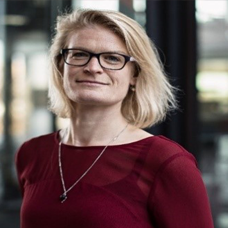 Gesa Milzer is Senior Project Manager at NODES AS. She started working in the energy sector at Vattenfall in 2009. In 2015, after a Ph.D. in Marine Geology, she decided to combine her environmental background and experience in the energy sector to work as International Business Manager in Power Production Forecasting at Meteológica. Gesa joined NODES in January 2020. She manages the research projects in NODES and Business Development in Central and Southern Europe.
Gesa Milzer is Senior Project Manager at NODES AS. She started working in the energy sector at Vattenfall in 2009. In 2015, after a Ph.D. in Marine Geology, she decided to combine her environmental background and experience in the energy sector to work as International Business Manager in Power Production Forecasting at Meteológica. Gesa joined NODES in January 2020. She manages the research projects in NODES and Business Development in Central and Southern Europe.
Panelists
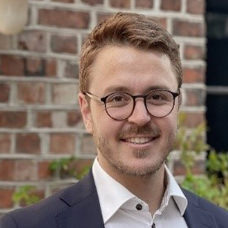 Svein Jørgen Sønning, Head of Technology at NODES AS, is a tech and energy optimist with responsibility for NODES’ overall tech strategy and a driver of business developments. Ahead of joining NODES, he was focusing on developing novel product offerings for flexibility service providers and the grid at a vertically integrated utility in Scandinavia. Over the last years, Svein Jørgen has had a key role in expanding NODES flexibility markets in Europe and to transformative initiatives in Canada.
Svein Jørgen Sønning, Head of Technology at NODES AS, is a tech and energy optimist with responsibility for NODES’ overall tech strategy and a driver of business developments. Ahead of joining NODES, he was focusing on developing novel product offerings for flexibility service providers and the grid at a vertically integrated utility in Scandinavia. Over the last years, Svein Jørgen has had a key role in expanding NODES flexibility markets in Europe and to transformative initiatives in Canada.
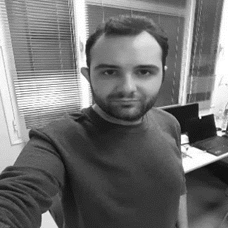 Vasileios Boglou received the M.Eng. degree in electrical and computer engineering from the Technical University of Crete, Chania, Greece in 2018. He holds a Ph.D. in electrical engineering from Democritus University of Thrace, Greece. From 2018 to present he participates, as a researcher, in various projects, with the Democritus University of Thrace, Greece. Since September 2022, he has been researcher with the Hellenic Electricity Distribution Network Operator (HEDNO S.A.). His research interest includes the study of the impacts of electric vehicles and distributed energy resources integration into energy distribution networks. He participates as a senior researcher in the HEDNO project team, which is involved in the OPENTUNITY project.
Vasileios Boglou received the M.Eng. degree in electrical and computer engineering from the Technical University of Crete, Chania, Greece in 2018. He holds a Ph.D. in electrical engineering from Democritus University of Thrace, Greece. From 2018 to present he participates, as a researcher, in various projects, with the Democritus University of Thrace, Greece. Since September 2022, he has been researcher with the Hellenic Electricity Distribution Network Operator (HEDNO S.A.). His research interest includes the study of the impacts of electric vehicles and distributed energy resources integration into energy distribution networks. He participates as a senior researcher in the HEDNO project team, which is involved in the OPENTUNITY project.
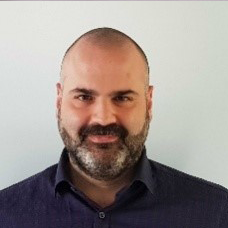 Antonis Papanikolaou is a Programme & Business Development Manager at Hypertech. He is responsible for maintaining the funding pipeline for the company research activities and oversees a portfolio of EU co-funded projects on smart energy and buildings. He is an electrical engineer by training, holds an MBA and has a keen interest in innovative climate adaptation and mitigation techniques.
Antonis Papanikolaou is a Programme & Business Development Manager at Hypertech. He is responsible for maintaining the funding pipeline for the company research activities and oversees a portfolio of EU co-funded projects on smart energy and buildings. He is an electrical engineer by training, holds an MBA and has a keen interest in innovative climate adaptation and mitigation techniques.
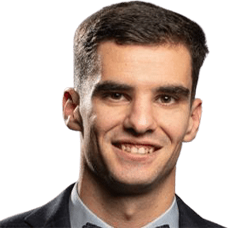 Serafeim Panidis received the M.Eng. degree in Electrical and Computer Engineering from Democritus University of Thrace in 2018 and the M.Sc. degree in Electrical Engineering from Technical University of Denmark (DTU), in 2021. Since January 2023, he is working as Researcher Electrical Engineer at the Department of Research, Technology and Development of the Independent Power Transmission System Operator (IPTO). He is actively involved in various research programs, including OPENTUNITY. Prior to that, he worked as junior automation engineer and participated in the design and configuration phase of the Distributed Control System (DCS) and the Human Interface for the Greek Refineries (HELLENiQ Energy). His primary research interests relate to the power systems with high penetration of RES, power electronics and energy markets. He is a member (chartered engineer) of the Technical Chamber of Greece.
Serafeim Panidis received the M.Eng. degree in Electrical and Computer Engineering from Democritus University of Thrace in 2018 and the M.Sc. degree in Electrical Engineering from Technical University of Denmark (DTU), in 2021. Since January 2023, he is working as Researcher Electrical Engineer at the Department of Research, Technology and Development of the Independent Power Transmission System Operator (IPTO). He is actively involved in various research programs, including OPENTUNITY. Prior to that, he worked as junior automation engineer and participated in the design and configuration phase of the Distributed Control System (DCS) and the Human Interface for the Greek Refineries (HELLENiQ Energy). His primary research interests relate to the power systems with high penetration of RES, power electronics and energy markets. He is a member (chartered engineer) of the Technical Chamber of Greece.
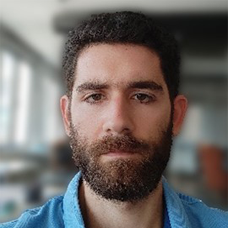 Athanasios-Rafail Lagos is a Senior Researcher at SmartRUE (Smart grids
Research Unit of the School of Electrical and Computer Engineering of the NTUA), where he specializes in the application of optimization and game theoretic methods to the optimal operational scheduling and
planning of power systems. Since joining in 2022, he has contributed to the projects “SYNERGIES”, “ODEON” and “EnergyS”. Athanasios holds a PhD in Electrical Engineering from NTUA and has a strong background in
optimization, control and game theory, focusing on applications in decentralized systems.
Athanasios-Rafail Lagos is a Senior Researcher at SmartRUE (Smart grids
Research Unit of the School of Electrical and Computer Engineering of the NTUA), where he specializes in the application of optimization and game theoretic methods to the optimal operational scheduling and
planning of power systems. Since joining in 2022, he has contributed to the projects “SYNERGIES”, “ODEON” and “EnergyS”. Athanasios holds a PhD in Electrical Engineering from NTUA and has a strong background in
optimization, control and game theory, focusing on applications in decentralized systems.
Panel 7. Power Systems Cybersecurity and Cyber Resiliency
The panel discussion on Power Systems Cybersecurity and Cyber Resiliency brings together leading experts from academia and industry to explore the critical challenges and opportunities in securing modern power systems. Topics will include the latest cyber threats, such as man-in-the-middle attacks, ransomware, and targeted attacks, and their impact on grid reliability. The panel will evaluate existing cybersecurity measures, discuss strategies for enhancing system resilience, and examine the role of policy and regulation in promoting cybersecurity. Future directions, including advancements in AI, blockchain, digital twins-based cybersecurity, and secure communication protocols, will also be covered. This engaging dialogue aims to deepen understanding of how to protect and maintain the security and resilience of increasingly interconnected and digitized power systems.
Moderator:
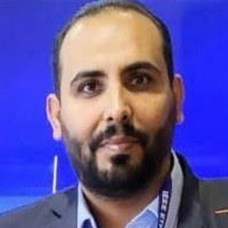
Hassan Haes Alhelou (Senior Member, IEEE) is currently affiliated with the Massachusetts Institute of Technology (MIT) in Cambridge, MA, USA, and with Monash University, Australia. Previously, he was with the School of Electrical and Electronic Engineering at University College Dublin (UCD), Ireland (2020-2021), Sultan Qaboos University (SQU) in Oman, and Isfahan University of Technology (IUT), Iran. He has also served as a faculty member at Tishreen University, Syria since 2012. In 2022/23, Dr. Alhelou was listed among the Top 2% of scientists globally by Stanford University. He was included in the 2018 and 2019 Publons and Web of Science lists of the top 1% of reviewers and researchers in engineering and cross-fields. He has received numerous accolades, including the Outstanding Reviewer Award from journals such as ECM, ISA Transactions, and Applied Energy. He was honored as the best young researcher at the Arab Student Forum Creative at Alexandria University, Egypt, in 2011, and received the Excellent Paper Award from the IEEE CSEE Journal of Power and Energy Systems in 2021/2022. Dr. Alhelou has authored or edited seven books with publishers like Springer, IET, Wiley, Elsevier, and Taylor& Francis. He serves as an editor for several prestigious journals. He has participated in over 15 international industrial projects, securing more than $1M in funding and participating in $15M funded projects. His research focuses on power systems, dynamics and stability, cybersecurity, operation and control, dynamic state estimation, energy decarbonisation and digitalisation, and energy future.
Panelists
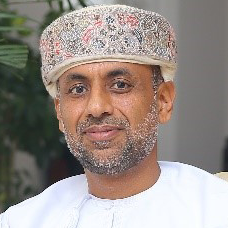
Amer Al-Hinai earned his M.Sc. and Ph.D. degrees from West Virginia University. He is a Professor of Electrical Engineering and serves as the Deputy Vice-Chancellor for Postgraduate Studies & Research (DVC-PSR) at Sultan Qaboos University. Previously, he was the founding Director of SQU's Sustainable Energy Research Center (SERC). Additionally, he served as a Visiting Professor at the Masdar Institute (MI) of Science and Technology, UAE. Furthermore, he was a Member and Chairman of the Authority for Electricity Regulation in Oman and a presidium member of the Energy Regulators Regional Association (ERRA). Prof. Al-Hinai is a senior member of the IEEE, having previously chaired the IEEE - Oman Section, and holds a Consultant grade from the Oman Society of Engineers. He has secured numerous consultancies and research grants and has published over 110 Scopus-indexed journal and conference papers. Prof. Al-Hinai has received several awards, including the SQU Distinguished Researcher Award, Best Research Paper Awards, recognition on SQU University Day for research and international awards, and acknowledgment as one of the Pioneers in Engineering Practice in the Gulf. His research interests encompass various areas related to energy, including energy production, renewable energy resources, power systems, energy efficiency, energy management, and energy conversion. He has served as a keynote and invited speaker at various local and international events and currently holds the position of Editorial Board Chairman for seven SQU journals, membership on the editorial board of the Arab Gulf Journal of Scientific Research, and the role of Associate Editor for the International Journal of Renewable Energy Technology.
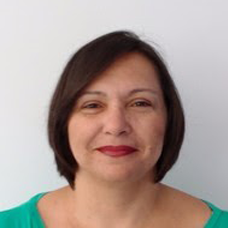
Helen C. (Nelly) Leligou is currently professor at the department of Industrial Design and Production Engineering, University of West Attica and is also acting as consultant and senior project manager for companies in the ICT field. Her research interests lied mainly in architectures and protocol design and implementation of computer networks while currently, she is working on block-chain technologies, IoT enabled systems for various application sectors including e-learning, energy efficiency and agri-food supply chain. She has participated in more than 20 EU-funded research projects (acting in some of them as scientific coordinator). She has also acted as proposals’ evaluator and project reviewer for EU commission and other initiatives. Her research results have been published in more than 200 scientific journals and conferences.
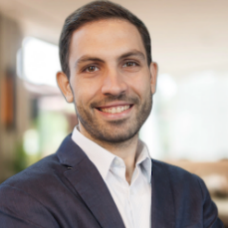
Charalambos (Harrys) Konstantinou is currently an Associate Professor of Electrical and Computer Engineering and an Affiliate Professor of Computer Science with the Computer, Electrical and Mathematical Science and Engineering Division (CEMSE), King Abdullah University of Science and Technology (KAUST), Thuwal, Saudi Arabia. He is the PI of the Secure Next Generation Resilient Systems Laboratory (SENTRY) at KAUST. He received the M.Eng. degree in ECE from the National Technical University of Athens (NTUA), Greece, in 2012, and the Ph.D. degree in Electrical Engineering from New York University (NYU), NY, USA, in 2018. Before joining KAUST, he was an Assistant Professor with the Center for Advanced Power Systems (CAPS), Florida State University (FSU). His research interests include critical infrastructures security and resilience with special focus on smart grid technologies, renewable energy integration, and real-time simulation. He is the Co-Chair of the IEEE Task Force on Cyber-Physical Interdependence for Power System Operation and Control (CPS) and he serves as an Associate Editor of the IEEE Transactions on Industrial Informatics (TII).
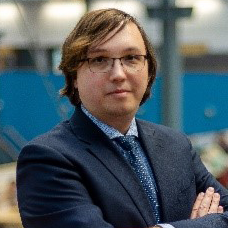
Alexandru Ştefanov (Member, IEEE) received the M.Sc. degree from the University Politehnica of Bucharest, Romania, in 2011, and the Ph.D. degree from University College Dublin, Ireland, in 2015. He is Associate Professor in intelligent electrical power grids in the Department of Electrical Sustainable Energy at TU Delft, The Netherlands. He is the Director of Control Room of the Future (CRoF) Technology Centre. He is leading the Cyber Resilient Power Grids (CRPG) research group. His research interests include cyber security of power grids, resilience of cyber-physical systems, and next generation grid operation. He holds the professional title of Chartered Engineer from Engineers Ireland.
Panel8. Navigating the evolution of Energy Communities in Europe
This panel session will explore the dynamic landscape of energy communities in Europe, focusing on the transformative changes and emerging challenges. As the energy sector undergoes rapid shifts towards sustainability, energy communities play a pivotal role in fostering local energy production and consumption. Experts will discuss policy developments, technological advancements, and innovative practices shaping these communities. Attendees will gain insights into regulatory frameworks, financial models, and community engagement strategies. The session aims to highlight best practices, identify obstacles, and propose solutions to enhance the resilience and effectiveness of energy communities across Europe.
Moderators
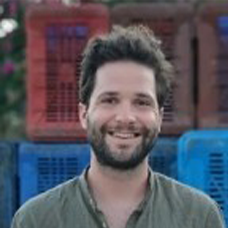 Alexandros-Georgios Chronis received his diploma in Electrical and Computer Engineering from the ECE department at the University of Patras in 2017. Since then, he has worked at the private sector at the company Comtel Mfg Co, as an electrical engineer. Since 2019, he has been working as a researcher at the SmartRUE research team, where he has been involved in European and national RD projects. He currently pursues his PhD at NTUA focusing on energy communities, local energy markets and P2P energy trading. He is also active in promoting Energy Communities in Greece. He is a member of the Technical Chamber of Greece and a founding member of the Collective Energy Coop energy community.
Alexandros-Georgios Chronis received his diploma in Electrical and Computer Engineering from the ECE department at the University of Patras in 2017. Since then, he has worked at the private sector at the company Comtel Mfg Co, as an electrical engineer. Since 2019, he has been working as a researcher at the SmartRUE research team, where he has been involved in European and national RD projects. He currently pursues his PhD at NTUA focusing on energy communities, local energy markets and P2P energy trading. He is also active in promoting Energy Communities in Greece. He is a member of the Technical Chamber of Greece and a founding member of the Collective Energy Coop energy community.
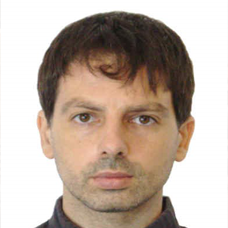 Athanasios Vasilakis received his Diploma in Electrical Engineering in 2012 from the School of Electrical and Computer Engineering, National Technical University of Athens (NTUA). He is currently a PhD student at the Electric Power Division of NTUA in the area of Distributed Energy Resources. Since 2012, he has been working as a researcher in the Smart grids Research Unit where he has involved in R&D projects. He is also member of the Rural Electrification Research Group of the NTUA, a group which conducts interdisciplinary research with the aim of providing technical solutions for rural energy access. He is a founding member and board member of the civil energy community, Collective Energy.
Athanasios Vasilakis received his Diploma in Electrical Engineering in 2012 from the School of Electrical and Computer Engineering, National Technical University of Athens (NTUA). He is currently a PhD student at the Electric Power Division of NTUA in the area of Distributed Energy Resources. Since 2012, he has been working as a researcher in the Smart grids Research Unit where he has involved in R&D projects. He is also member of the Rural Electrification Research Group of the NTUA, a group which conducts interdisciplinary research with the aim of providing technical solutions for rural energy access. He is a founding member and board member of the civil energy community, Collective Energy.
Panelists
 Johannes Vollmer is Green Energy and Climate Action Expert & Senior Project and Policy Manager at EREF (EUROPEAN RENEWABLE ENERGIES FEDERATION). With 13 years of experience in green energy and climate action, Johannes has gained in-depth knowledge of EU policymaking and its funding programmes. Through his work Johannes supports Green Deal reform initiatives that are driving the decarbonisation of energy, mobility and heating, through the expansion of renewables and hydrogen, flexible and integrated energy systems, digitalization and energy efficiency. Before joining EREF in 2018, Johannes worked as EU Policy Director for GEODE, which is the European associations of local energy distributors, representing national associations and local utilities from 15 countries across Europe. In this function, he has closely worked with EU institutions, regulators and other energy stakeholders throughout the adoption process of the Clean Energy for All Europeans Package.
Johannes Vollmer is Green Energy and Climate Action Expert & Senior Project and Policy Manager at EREF (EUROPEAN RENEWABLE ENERGIES FEDERATION). With 13 years of experience in green energy and climate action, Johannes has gained in-depth knowledge of EU policymaking and its funding programmes. Through his work Johannes supports Green Deal reform initiatives that are driving the decarbonisation of energy, mobility and heating, through the expansion of renewables and hydrogen, flexible and integrated energy systems, digitalization and energy efficiency. Before joining EREF in 2018, Johannes worked as EU Policy Director for GEODE, which is the European associations of local energy distributors, representing national associations and local utilities from 15 countries across Europe. In this function, he has closely worked with EU institutions, regulators and other energy stakeholders throughout the adoption process of the Clean Energy for All Europeans Package.
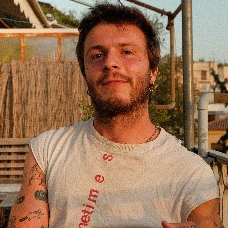 Chris Vrettos is working for REScoop.eu, the European Federation of Energy Cooperatives, and Electra Energy (Greece). Both organisations promote the active engagement of citizens in renewable energy production in Europe. He has worked on multiple research programs as an assistant, on topics such as the EU Green Deal and degrowth. He’s interested in international climate politics and journalism and has attended multiple UNFCCC COPs.
Chris Vrettos is working for REScoop.eu, the European Federation of Energy Cooperatives, and Electra Energy (Greece). Both organisations promote the active engagement of citizens in renewable energy production in Europe. He has worked on multiple research programs as an assistant, on topics such as the EU Green Deal and degrowth. He’s interested in international climate politics and journalism and has attended multiple UNFCCC COPs.
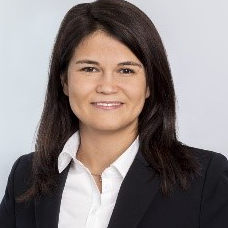 Tara Esterl is Head of Competence Unit Integrated Energy Systems (IES), at AIT Austrian Institute of Technology. Working at AIT since 2012, her previous research work focused on the operation of flexibility for markets and grids. She is contributing to and leading large research projects such as the Flex+, Hybrid-VPP4DSO and Industry4Redispatch (I4RD). She is the representative of ETIP-SNET for EUREC and is ExCo delegate of the IEA UsersTCP for Austria.
Tara Esterl is Head of Competence Unit Integrated Energy Systems (IES), at AIT Austrian Institute of Technology. Working at AIT since 2012, her previous research work focused on the operation of flexibility for markets and grids. She is contributing to and leading large research projects such as the Flex+, Hybrid-VPP4DSO and Industry4Redispatch (I4RD). She is the representative of ETIP-SNET for EUREC and is ExCo delegate of the IEA UsersTCP for Austria.
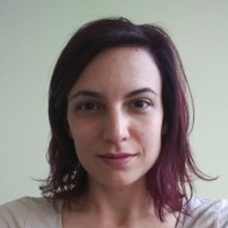 Maria Margosi is a PhD researcher with expertise in environmental and ecological economics, as well as sustainable development. Her current research focuses on various aspects of the energy transition, including energy communities, energy justice, and the socioeconomic impacts of this shift. She has worked on several projects related to climate change, energy trends in the EU, the green transition of small and medium-sized enterprises (SMEs) in Greece, and the socioeconomic and environmental impacts of renewable energy development. At the present time, she works for Collective Energy Cooperative where she has a versatile role.
Maria Margosi is a PhD researcher with expertise in environmental and ecological economics, as well as sustainable development. Her current research focuses on various aspects of the energy transition, including energy communities, energy justice, and the socioeconomic impacts of this shift. She has worked on several projects related to climate change, energy trends in the EU, the green transition of small and medium-sized enterprises (SMEs) in Greece, and the socioeconomic and environmental impacts of renewable energy development. At the present time, she works for Collective Energy Cooperative where she has a versatile role.
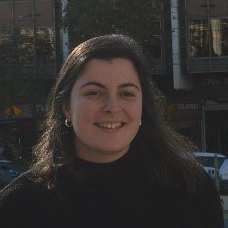 Sandy Fameliari is a Physicist specializing in climate change and renewable energy. For over a decade, she has been active in environmental NGOs, focusing on energy democracy and sustainable solutions. Currently, she works at Electra Energy in Greece, supporting the development of community energy initiatives. She is also one of the founding members of Hyperion Energy Community which she represents in Desmi's Board of Directors.
Sandy Fameliari is a Physicist specializing in climate change and renewable energy. For over a decade, she has been active in environmental NGOs, focusing on energy democracy and sustainable solutions. Currently, she works at Electra Energy in Greece, supporting the development of community energy initiatives. She is also one of the founding members of Hyperion Energy Community which she represents in Desmi's Board of Directors.
